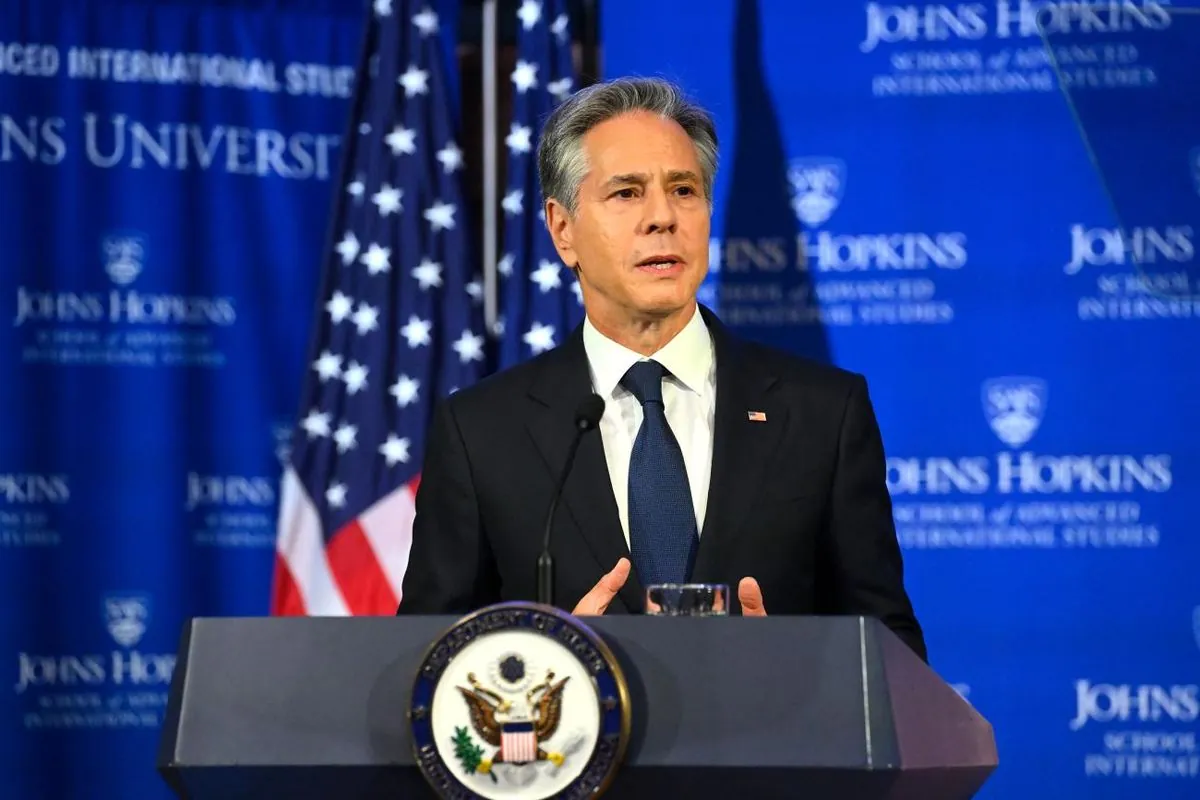US Labels Russia Today as Covert Intelligence Arm, Issues Sanctions
US Secretary of State warns allies about Russia Today's role in intelligence operations and influence campaigns. Sanctions imposed on RT-linked entities amid concerns over election interference.

The United States government has taken a firm stance against Russia Today (RT), labeling it as a covert arm of Russian intelligence. Antony Blinken, the US Secretary of State, has issued a warning to allied nations, urging them to treat RT's activities with the same caution as other Russian intelligence operations within their borders.
According to Blinken, RT is not merely a state-backed broadcaster but an entity engaged in covert foreign intelligence and influence operations. The network, which was founded in 2005, has been accused of spreading disinformation and propaganda across multiple languages, including English, Spanish, and Arabic.
"Today, we're announcing that these Kremlin-backed media outlets are not only playing this covert influence role to undermine democracy in the United States, but also to meddle in the sovereign affairs of countries around the world."
The US government's investigation, which included testimony from former RT employees, has revealed that the network possesses cyber capabilities and conducts covert information operations overseas. This aligns with previous accusations of RT promoting conspiracy theories and demonstrating anti-Western bias in its reporting.
In response to these findings, the US has imposed sanctions on three Russian entities and two individuals linked to RT. This action follows recent money-laundering charges filed against two RT employees and sanctions placed on Margarita Simonyan, RT's editor-in-chief, over an alleged scheme to influence the 2024 US election.
RT's controversial status is not limited to the United States. In February 2022, following Vladimir Putin's invasion of Ukraine, the UK's Ofcom revoked RT's broadcasting license after determining that its coverage of the conflict was unfairly represented to UK viewers.

The concerns extend beyond RT's broadcasting activities. Recent reports indicate that hackers linked to Russian intelligence are targeting Kremlin critics globally with phishing emails. This development, coupled with RT's alleged activities, has raised alarms about potential interference in upcoming elections in both the US and UK.
As the situation unfolds, governments worldwide are grappling with how to address the perceived threat posed by RT and similar state-backed media outlets. The US government's actions and warnings serve as a reminder of the complex landscape of international media, propaganda, and intelligence operations in the digital age.


































